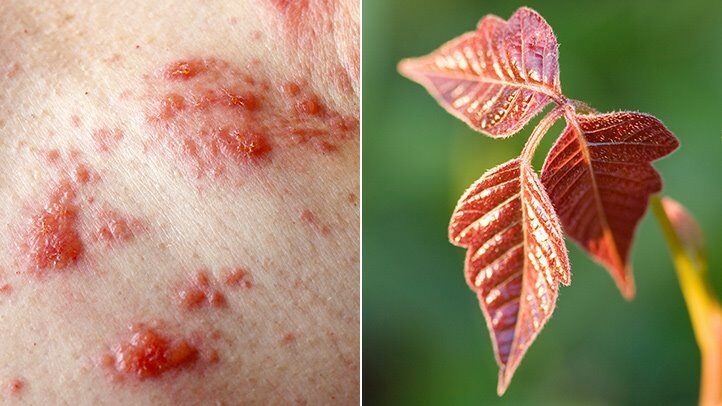Physical Address
304 North Cardinal St.
Dorchester Center, MA 02124
Physical Address
304 North Cardinal St.
Dorchester Center, MA 02124

Contents
When spending time outdoors, especially in wooded areas or gardens, it’s essential to be aware of plants like poison ivy that can cause a rash upon contact. Understanding what a poison ivy rash looks like can help you identify and treat it promptly. In this article, we will explore the appearance of a poison ivy rash, common symptoms, and effective treatment options.
A poison ivy rash typically appears as red, swollen, and itchy patches on the skin. The rash is caused by an allergic reaction to the urushiol oil found in poison ivy plants. It can manifest as soon as a few hours after contact or take up to a few days to develop. The affected area may also form blisters or bumps that ooze fluid.
One of the key characteristics of a poison ivy rash is its streaky or linear pattern. This is because when the plant brushes against the skin, it leaves behind a trail of urushiol oil, resulting in a distinctive rash pattern. The rash can vary in size and severity depending on the individual’s sensitivity to the oil.
In addition to the visible signs of a poison ivy rash, there are several common symptoms that may accompany it. These symptoms can range from mild to severe and may include:
It’s essential to avoid scratching the rash, as this can lead to infection and further irritation. If the rash is severe or covers a large area of the body, it’s recommended to seek medical attention for appropriate treatment.
As of 2024, there are several effective treatment options for a poison ivy rash that can help alleviate symptoms and speed up the healing process. These may include:
In some cases, a healthcare provider may prescribe oral corticosteroids or other medications to address severe reactions to poison ivy. It’s essential to keep the affected area clean and dry to prevent infection and promote healing.
One of the best ways to avoid a poison ivy rash is to learn how to identify and steer clear of poison ivy plants. Remember the following tips to prevent exposure:
By taking these precautions and being vigilant in outdoor settings, you can significantly reduce the risk of coming into contact with poison ivy and developing a rash.
If you suspect that you have been exposed to poison ivy or are experiencing symptoms of a poison ivy rash, it’s essential to consult a healthcare provider. They can provide a proper diagnosis, recommend appropriate treatment, and offer guidance on managing the rash effectively. Remember that early intervention can help prevent the rash from worsening and promote faster healing.